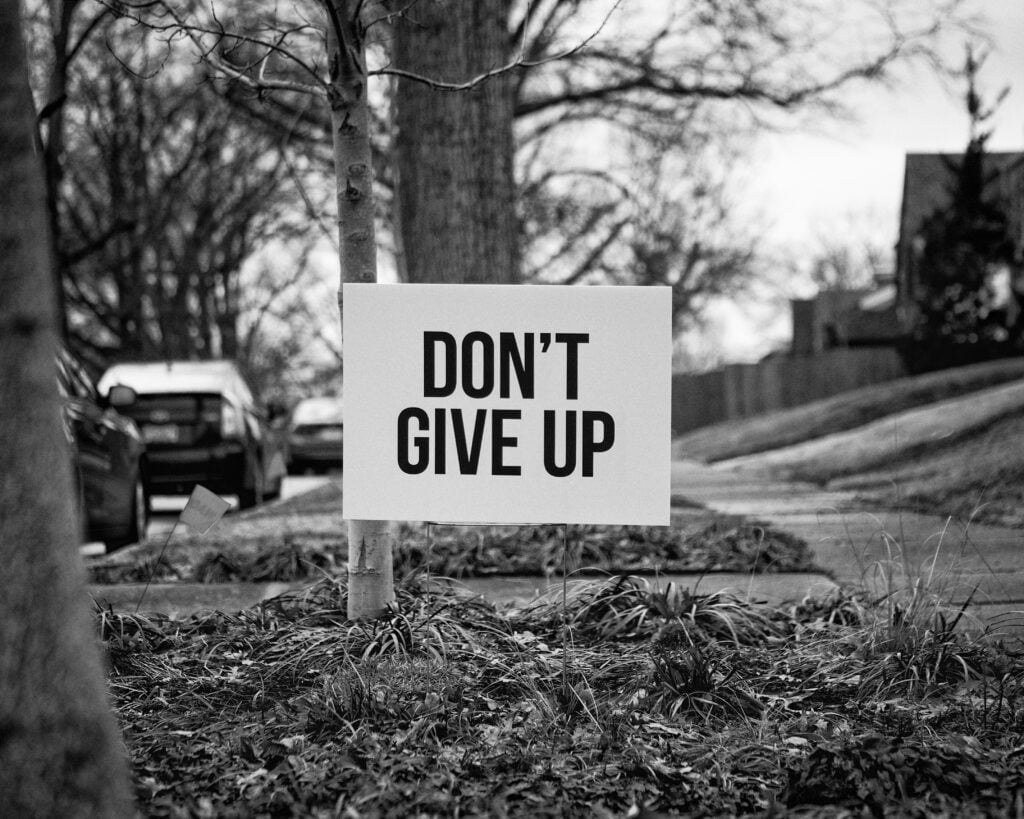
The EU’s recent failure to rise to the unprecedented challenge presented by the climate emergency should not lead us down the path to cynicism but must prod us to redouble our efforts to bring about meaningful change, writes Sabine Frank.
“So, how do you know Y (the host)?” I asked at a recent party.
“We became friends through a shared sense of misanthropy,” was my co-guest’s surprising reply.
“Ugh, where does that come from?”
“Well, humans are so incapable of acting in the long-term interest of humanity and the planet.”
While misanthropy does not make for good party vibes and I prefer to look for hope in the dark, as Rebecca Solnit called one of her books, I do sometimes worry about our collective ability to act in our common long-term interest. A case in point relates to the EU’s Emissions Trading System.
Why did EU environment ministers offer even more free pollution permit handouts to the steel sector on top of €400 billion of free pollution subsidies which the European Parliament had already approved to heavy industry?
Why do environment ministers want to introduce the Carbon Border Adjustment Mechanism more slowly than the European Commission proposed while allowing the sectors covered to continue receiving most of their pollution permits for free? Why, in contrast, does the Environment Council not feel the same need as the European Parliament to delay the introduction of emissions trading for private road use and buildings?
The moral responsibility of achieving science-compatible emissions reductions needed to avert the climate crisis seems to have been side-lined by short-term cost concerns, which stands in stark contrast to the principled position which the EU took towards the war in Ukraine by imposing heavy sanctions on Russia despite their painful boomerang effect on our industries and the economy, not to mention society as a whole.
Or, casting further out, why do countries like Brazil, instead of saving the precious Amazon from imminent destruction, clutch at the straws of carbon farming and generating revenue from carbon markets when this makes no sense for the climate?
Emissions trading trilogue
We know that the steel industry (or should we call it the steal industry?) exerted immense pressure on the Environment Council, especially via the German government. Business lobbies, with their deep pockets and defence of immediate, more graspable interests, seem to have an easier game than civil society groups representing the public interest when it comes to influencing Council positions.
As the legislative process goes into tripartite inter-institutional negotiations, civil society is faced with even more of a black box. Yet while we know that the EU institutions will be seeking a compromise between their already compromised positions, we reject political expediency and will continue to push for what is necessary to increase the overall ambition of the ETS and to ensure that the polluter pays. While we know what the mid-point between the Council’s 61% and the Parliament’s 63% emissions reductions targets is, we will continue to defend the 70% reduction we know is needed to remain within a safer carbon budget. We will train a spotlight on an otherwise secretive process in order to generate an improved outcome. Exploratory talks are due already in mid-July. The conclusion will come later in the year.
Carbon farming credit crunch
One can see why Brazil considers that international carbon markets were developed to suit the interests of developed countries, namely to offset the emissions of the rich’s productive activites with the preservation or restoration rather than the exploitation of the natural resources of the poor. This view was expressed during a recent event in the framework of the German-Brazilian agro-political dialogue. Brazil wishes to redress this by generating credits from activities which simultaneously generate agricultural commodities.
But two wrongs don’t make a right. Carbon markets remain a flawed source of development finance, I explained during this event. Soil carbon credits in particular are not suitable for compensating emissions from fossil fuel combustion because of the lack of permanency of the removals and the asymmetry between the climate effect of emissions and those of bio-removals. The emissions from agriculture also far outweigh the removal potential from carbon farming and any agricultural carbon removals should come in addition to delivering agricultural emission reductions first, meaning that agriculture should not offer offset credits to other industries. Because of concerns like this and the overarching view that international carbon markets have a quality problem, they are currently subject to regulatory efforts which, if the results are optimal, will withhold their quality badge from carbon farming protocols because of their many problems (concerning robustness of carbon quantification, permanence of removals, leakage, who is liable for reversals, as well as environmental and social safeguards).
At Carbon Market Watch, we have been contributing our positions to the Voluntary Carbon Market Initiative (VCMI), the Integrity-Council for the Voluntary Carbon Market (IC-VCM) and other efforts. Since the agreement on Article 6 of the Paris Agreement in Glasgow, we have also been following the process for the definition of the implementing rules – most recently at the UNFCCC intersession in Bonn and heading for COP27 in Sharm-El-Sheik. Moreover, as the European Commission develops its own carbon removal certification system, we will grab every opportunity to ensure that removals don’t become eligible for offset credits.
“Hope is about broad perspective with specific possibilities, ones that invite or demand that we act,” explains Rebecca Solnit. As activists at the cutting edge of policymaking, we will take advantage of the summer break to refresh our perspective, act upon our convictions and keep pushing for positive change. We love humanity too much to be misanthropes.
The CMW newsletter will be back in September.
Read and subscribe to the CMW newsletter here.






